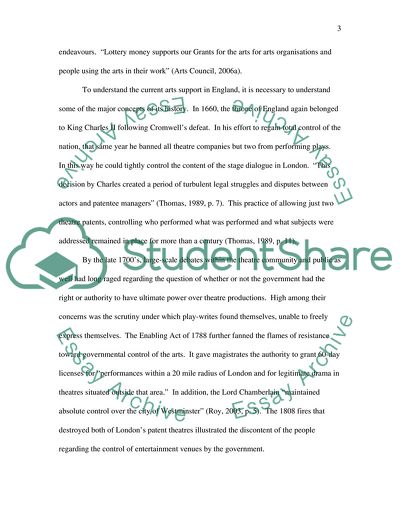Cite this document
(The UK Government and Its Important Role in the Cultural Sector Essay Example | Topics and Well Written Essays - 1250 words, n.d.)
The UK Government and Its Important Role in the Cultural Sector Essay Example | Topics and Well Written Essays - 1250 words. https://studentshare.org/culture/1704637-why-do-uk-governments-have-policies-for-the-arts-and-cultural-sectors
The UK Government and Its Important Role in the Cultural Sector Essay Example | Topics and Well Written Essays - 1250 words. https://studentshare.org/culture/1704637-why-do-uk-governments-have-policies-for-the-arts-and-cultural-sectors
(The UK Government and Its Important Role in the Cultural Sector Essay Example | Topics and Well Written Essays - 1250 Words)
The UK Government and Its Important Role in the Cultural Sector Essay Example | Topics and Well Written Essays - 1250 Words. https://studentshare.org/culture/1704637-why-do-uk-governments-have-policies-for-the-arts-and-cultural-sectors.
The UK Government and Its Important Role in the Cultural Sector Essay Example | Topics and Well Written Essays - 1250 Words. https://studentshare.org/culture/1704637-why-do-uk-governments-have-policies-for-the-arts-and-cultural-sectors.
“The UK Government and Its Important Role in the Cultural Sector Essay Example | Topics and Well Written Essays - 1250 Words”. https://studentshare.org/culture/1704637-why-do-uk-governments-have-policies-for-the-arts-and-cultural-sectors.


